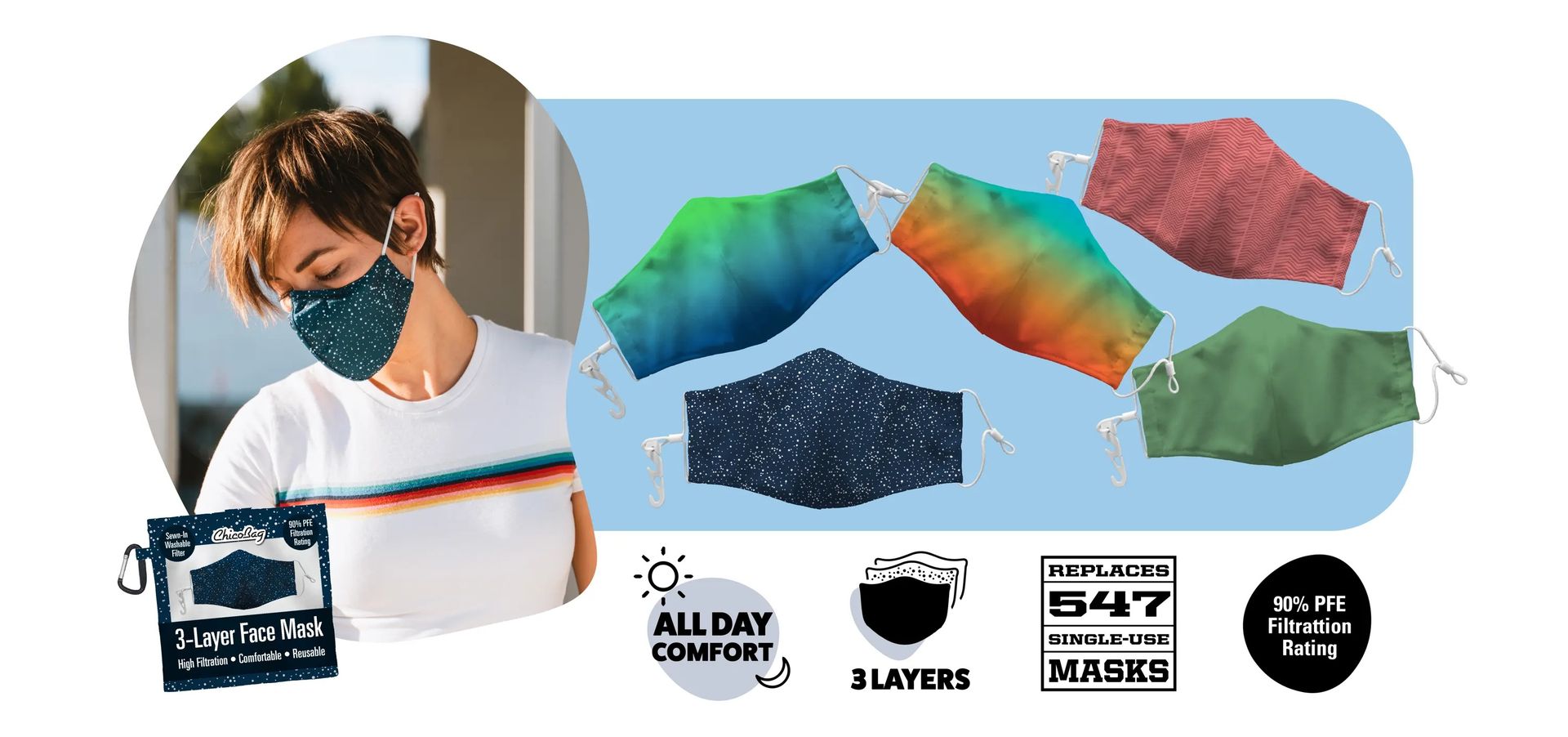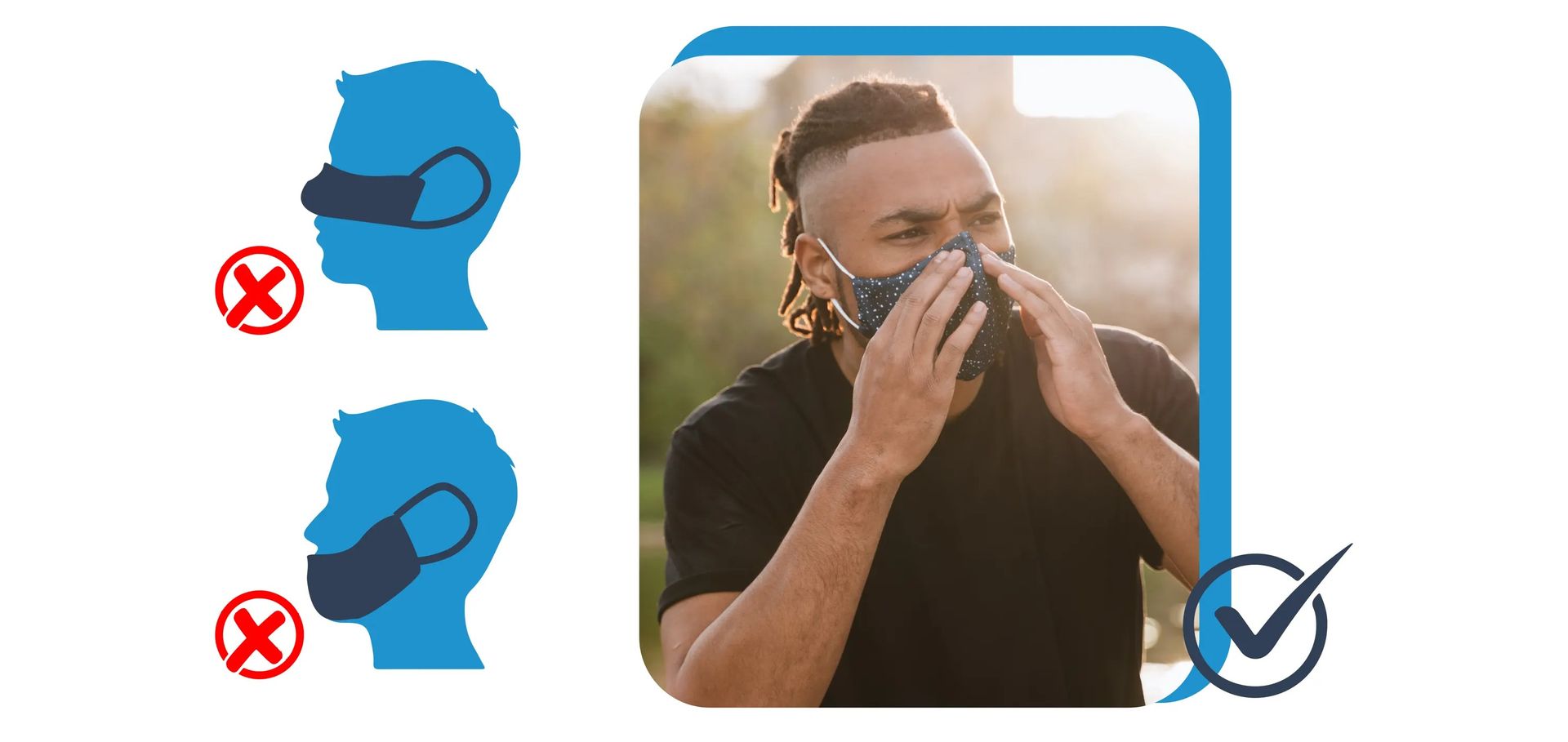
Now more than ever, the importance of creating sustainable products is paramount. As our lives have changed, one thing has not: protecting Mother Earth from single use waste to ensure it’s enjoyed by generations to come. The necessity of masks during the pandemic means many of them are already ending up in landfills, waterways, and in our ocean. This concern is made worse when confusing information is shared like the recent article “RIP Cloth Masks?” from Fast Company.
It’s important to correct misinformation about reusable products so the world can keep fighting against the single-use problem instead of adding more disposable masks to the environment. I attempted to do so by reaching out to the writer of the article with the accurate information. At this time, I haven’t received a response from Fast Company. But I would like to share the letter I wrote with all of you in the hope that it may inspire you to take a closer look at how the industry has made strides to provide a reusable, environmentally friendly, and safe solution for masks.

Hi Elizabeth,
Thank you for tackling a truly tough subject in your article: “RIP Cloth Masks?” It’s a subject none of us knew we’d have to be thinking about just a few years ago.
My name is Andy Keller, the founder of ChicoBag. We make reusable bags, totes, utensils, and facewear. We’ve been creating products in the reusable space for over 16 years, and have been recognized by Forbes, the New York Times, and Inc. I’m reaching out to you after a customer of ChicoBag emailed me to ask if all the information provided in your article was, in fact, true.
After reading through your article in depth, I’d like to clarify a few items for accuracy and respectfully ask for an update to your article. There are important details I think you and your readers will be interested in learning. As you well know, the most important part is educating the consumer, and you are in a great position to help.
"Since cloth masks come in a wide array of materials and designs, it’s hard to make generalizations about how effective they are."
While this was true early-on in the pandemic, the United States and Europe have since developed government-approved, international testing standards for community masks (aka non-N95 or surgical masks).
You can find them here:
- Certified Community Masks: Back in 2020, NBN (Belgian standardisation organisation) and/or CEN ( European standardisation organisation) came together to provide standards for community face coverings.
- ASTM F3502 - 21: The most recent standard published which you can find referenced by the CDC here.
These standards are important to communicate to the public and large organizations navigating their way through these murky times. Rather than throwing out the cloth mask option all together, buyers, decision makers, and companies such as airlines can keep their staff safe by purchasing products that meet these rigorous health standards.
"In a test conducted by the Environmental Protection Agency (EPA), surgical masks were found to provide 71.5% filtration, but only when they were fitted with ties that provide a close fit on the face. Surgical masks with ear loops only offered 38.1% filtration."
You’re right on the money with numbers here, but the crux of the mask dilemma is buried: the fit (how a mask is worn) of a face covering is just as important of a factor in effectiveness as the filtration. While you mention the importance of fit at the end of the article, this point needs to speak up loudly and clearly: without a proper fit, the filtration of a mask really means nothing. It’s often less about the mask type and more about the fit.
Other factors such as masks fitted with a metal nose bridge and contoured designs, which you mention in your interview with L’Orange, that reduce air gaps will significantly improve the effectiveness of a mask. This also allows for increased comfort which allows for the mask to be worn properly for a longer time. There are many companies (including my company, ChicoBag) that specifically created a mask that minimizes air gaps, provides good filtration and tests to the most recent standards adopted by governments around the world.

Finally, let’s talk sustainability.
One of the key points I am hoping you will amend your article to include is a consideration of reusable masks. On average, a high quality reusable mask can replace 547 disposable masks over its lifetime. What do single-use masks equate to? Our waterways, oceans, and even our national parks are further polluted. And it’s already begun affecting our environment. Don’t take my word for it: ABC news just aired a grizzly cub walking with a disposable mask. Standards prove many cloth masks can protect us as well as disposable options, so we need to protect the planet with our choices
Quality and tested cloth masks can help our medical staff, keep people safe and reduce the impact this global pandemic is having on our environment. Thank you for considering these points, and I would be happy to speak further with you on this important topic.
Best regards,
